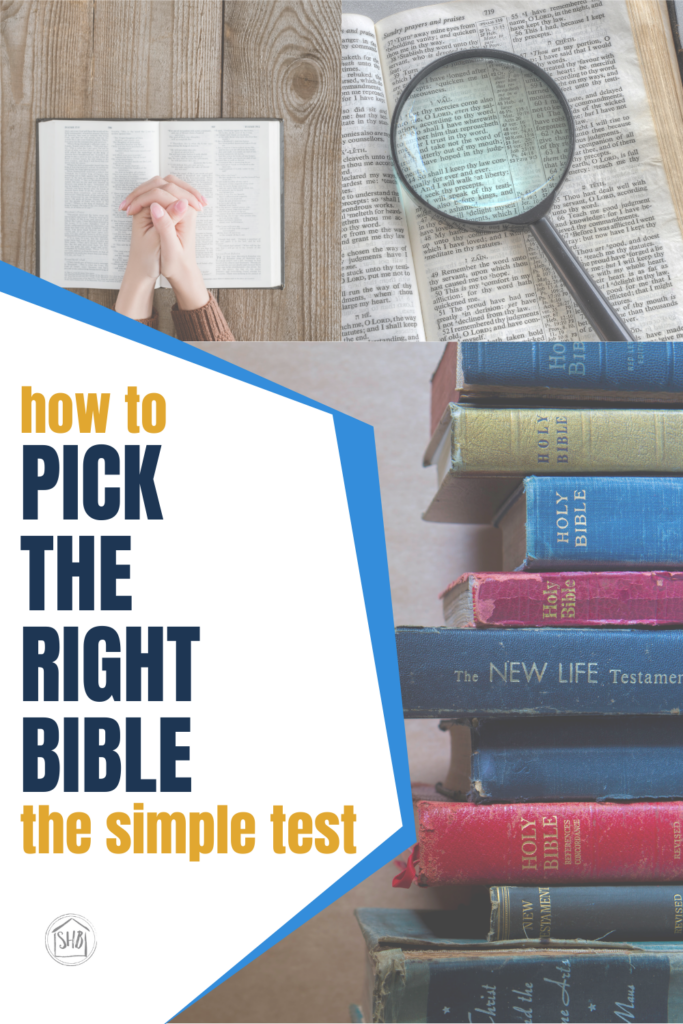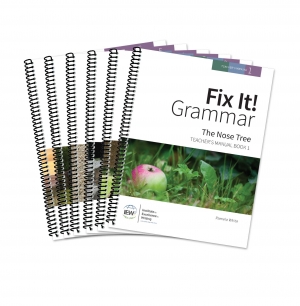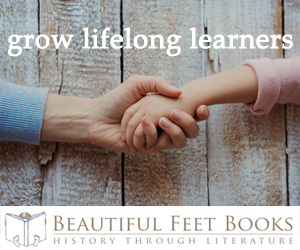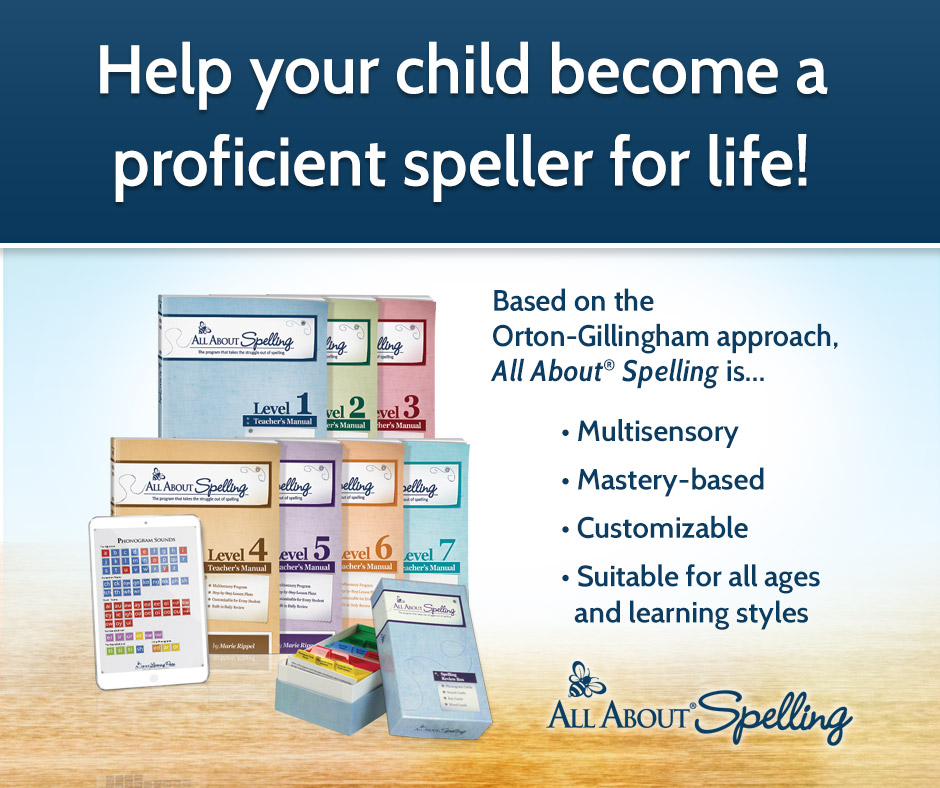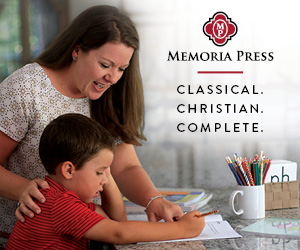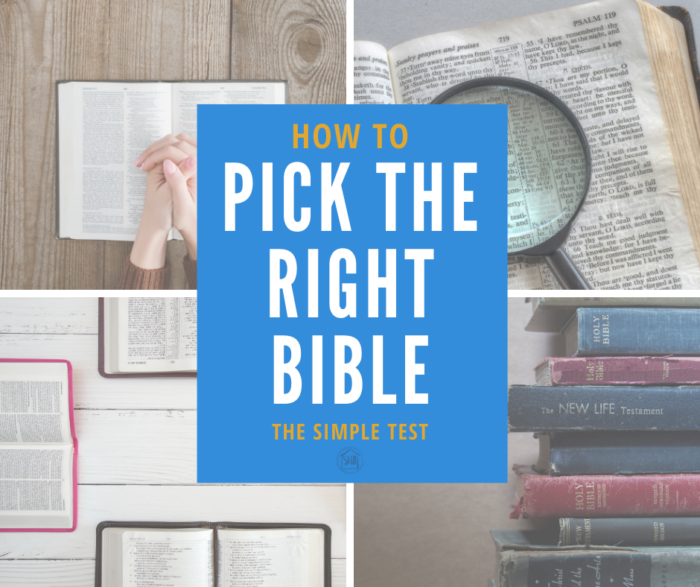
Most people don’t specifically choose their Bibles. They are gifted one when they become a believer. Or they use their grandmother’s old Bible. Others don’t know what to look for, so they just pick one that is pretty. Some adults even still carry around their very first Bibles just because they want what is familiar to them.
But, did you know that you can pick the best Bible for you based on something concrete? Something that is measured by more than familiarity or fancy? You can pick your Bible based on the quality and accuracy of the translation. Did you know there is a way to discover if your Bible is a good and accurate translation?
A Bible Testimony
Honestly, I didn’t know I could pick a translation of the Bible on anything more than previous preference. Or recommendations from other believers. I thought I had to be a Bible scholar or a seminary graduate to be able to pick the “best Bible translation.” I thought I had to know the original Greek and Hebrew to begin to make an educated choice on Bibles.
So, in my early days of walking with Jesus, I just read the Bible I already had. It was a New International Version (Student Bible). I quickly switched to a New American Standard Bible because it was the Bible my pastor taught from. Back then, I had a hard time listening to the pastor read a different version while I read along with him, using a Bible with different sentence structure and different wording. Who am I kidding? I still have a hard time listening to a different version than the one I am reading.
Then I went to college and discovered there are a ton of different versions of the Bible. I quickly discovered not all versions were created equal. In fact, some were not even translations at all. Some of them could more accurately be termed “interpretations.”
Choosing a Bible
I chose to steer clear of these “interpretations” of Scripture in favor of more accurate translations. And I knew the list of the “accurate ones” that I could choose from. So I stuck close to my NASB.
Still I didn’t know, that I could figure out which Bible translation was right for me, without any input from any “experts.” Simply through diligent Biblical word study, I could evaluate my Bible and figure out how accurate it is.
Why Bible Accuracy Matters
You may be wondering why it even matters what translation of the Bible one chooses. Isn’t it good just to be reading the Bible? Isn’t it profitable no matter how I get it in me?
Well, yes
…and no.
Scripture tells us a number of things about itself. Things that have been said so much in Christian circles that they have lost much of their meaning.
Every Part Matters
“All Scripture is inspired by God and profitable for teaching, for reproof, for correction, for training in righteousness; so that the man of God may be adequate, equipped for every good work” (2 Timothy 3:16-17). Note: God says His Word is not only His and not only it is profitable for us, but ALL of it is all those things. So every bit of it matters. That’s why studying the whole thing is worth it.
Every Word Matters
Jesus said of the word that not a bit of it, “not the smallest letter (one iota, yodh) or stroke (one projection of a letter, serif) shall pass away from the Law until it is accomplished” (Matthew 5:18). Down to the smallest letters and parts of letters, the words of God matter. They have meaning and purpose.
God’s Word is Important
David said of God and His Word: “Thou hast magnified Thy word according to all Thy name” (Psalm 138:2). He realized God Himself said His Word was on par or as substantive as His name – which is above all names, which is holy, which is forever, eternal. That makes His Word pretty important. And it makes the individual words of His Word important, too.
Accuracy and Clarity Matter
The Psalmist said of the Word of God, “Thy word is a lamp unto my feet, and a light unto my path” (Psalm 119:105). Add to this the same metaphor Jesus uses for the lamp of the body in the Sermon on the Mount, “the lamp of the body is the eye; if therefore your eye is clear, your whole body will be full of light” (Matthew 6:22). It shows just how important a clear lamp is. The accuracy and clarity of the Bible you choose is important for accurate and clear understanding of His Word.
Thus it matters that the Bible you hold in your hands is clear and accurate, down to the littlest details. You will want to pick the BEST Bible you can!
What Makes a Bible Accurate?
I may have convinced you it is important for you have an accurate translation of the Bible; but you may be wondering what’s the difference between an accurate translation and anything else?
There are two types of Bible translations: dynamic and formal equivalence. These two processes for translating the Bible into modern-day English highlight different things.
Dynamic translations
Dynamic translations highlight the overall, intended meaning of the passage. They would like for you to “get the meaning” just as the original hearers of the Word would have “gotten it.” The focus is less on individual words and more about the big picture. As you may note, this type of translation could vary greatly based on the translator’s interpretation of the text. Modern day popular examples of dynamic translations are: The Message, The Living Bible, and, to a lesser extent, The New International Version.
Formal equivalence
Formal equivalence translations are focused on getting the specific meaning of each individual word. They do this while translating the sentence structure and verbal dynamics of the original languages into modern language. These versions are less susceptible to the translator’s interpretation of a passage, as they are focused on a straightforward interpretation. But, some of these versions are more accurate than others. Modern day popular examples of formal equivalence translations are the: King James Version (original and New), the New American Standard Bible, and the English Standard Version.
As you can see, if you are looking to pick the best Bible – looking for accuracy and clarity, you will want to pick a Bible in the formal equivalence category. When you use and read one of these versions of the Bible, you can be certain you are getting the specifically God-chosen words of the Scriptures, which He has magnified according to His name.
As for the dynamic translations of Scripture – I hear that recycling thing is really catching on (wink).
How to Test the Accuracy of Your Bible
Once you have sorted through the vast array of translations available and have found one in the category of accurate Bibles, did you know you can evaluate your chosen Bible for accuracy? You don’t have to rely on those translators (who may be throwing in a little interpretation along the way). Rather, you can discover for yourself just how accurate the translation you have is.
You only need one thing: access to an Exhaustive Concordance of the Bible.
When you have access to an Exhaustive Concordance, you can look up any word in the Bible and discover immediately if it was translated clearly and accurately in your version. You simply look up the word you are interested in and look at the original word in the original language. If the definition you get is the same as the word in your Bible, the translators accurately translated that word.
Breaking a Rule
Do you remember in your English teacher telling you not to define a word with a word? Well, in Biblical Word study, it is BEST to define a word with a word. It is what tells you there is no difference between the original language and your modern translation. For example, if you look up the word for firstborn in Hebrews 1:5, you will find the Greek word for firstborn is “first child” or “firstborn.” The translators did their job well in this case.
As you do simple Biblical word study, you will begin to note if the words you look up match the words you find in your translation. The more they match, the better your translation.
Once you have evaluated the Bible translation you are using for study, you can ensure you picked the best Bible. Your use of the exhaustive concordance is a springboard for further Biblical word study. When you are ready to discover more about the individual words, there are more resources.
More About Biblical Word Study
I have written about the process of Biblical word study in my new book, Biblical Word Study. In it you can find out more about how to use the Exaustive Concordance and other resources to enrich and expand your understanding of the Word of God. The book is coming soon! You can sign up to get more details about it here:
